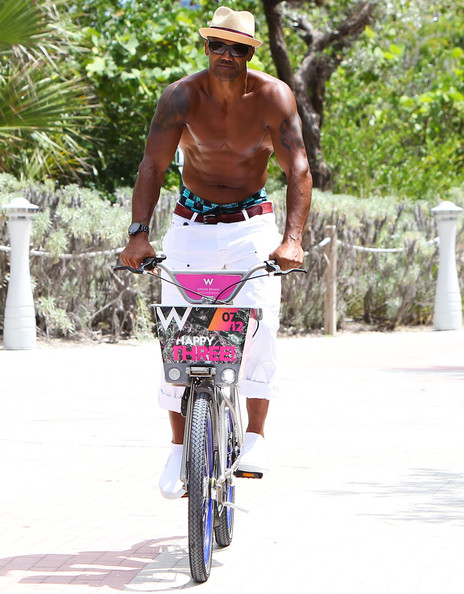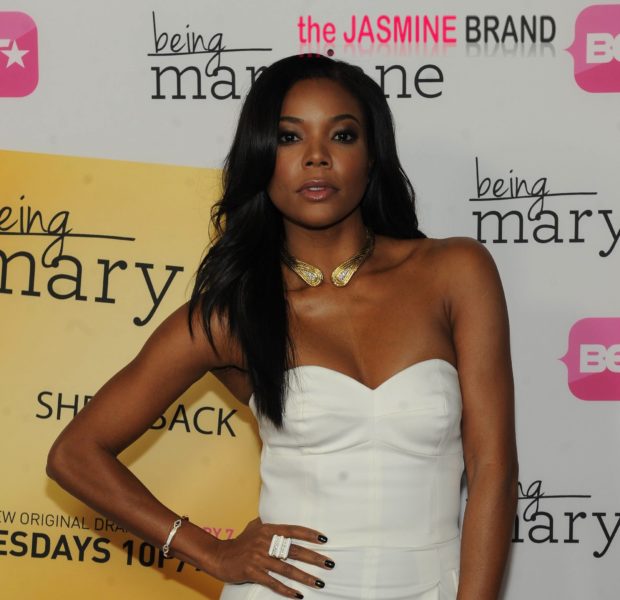Nate Parker Responds to Being Referred To As ‘Rapist’, Admits Initial Comments About Victim Were Insensitive
In a new interview with EBONY, Nate Parker is addressing the backlash he’s received about a rape case that he was involved with while in college. As previously reported, in 1999 while a sophomore at Pennsylvania State University, Parker and his roommate and wrestling teammate, Jean McGianni Celestin, were accused of raping a fellow Penn State student. Parker has a candid conversation with the outlet about consent, how his initial remarks about the case and the victim were insensitive and what he’s learned to date. Check out a few excerpts.
EBONY.com: You started out tonight addressing the controversy, and you talked a lot about male culture and toxic masculinity. So I want to kind of compare. What, at 19, did you know about consent?
Nate Parker: To be honest, not very much. It wasn’t a conversation people were having. When I think about 1999, I think about being a 19-year-old kid, and I think about my attitude and behavior just toward women with respect objectifying them. I never thought about consent as a definition, especially as I do now. I think the definitions of so many things have changed.
EBONY.com: So how does it differ for you?
Nate Parker: You mean like where I am right now?
EBONY.com: Yeah, as 36-year-old Nate.
Nate Parker: Put it this way, when you’re 19, a threesome is normal. It’s fun. When you’re 19, getting a girl to say yes, or being a dog, or being a player, cheating. Consent is all about–for me, back then–if you can get a girl to say yes, you win.
EBONY.com: Yes to, like, hanging out? Or yes to, like, sex?
Nate Parker: If I can be just honest about it, just being down. Back then, when I was young and we were out being dogs it was about is she down? You think she down?
EBONY.com: Was that a question you would actually pose to her?
Nate Parker: No.
EBONY.com: So it was kinda like an assumption you were working on?
Nate Parker: Back then, it felt like…I’ll say this: at 19, if a woman said no, no meant no. If she didn’t say anything and she was open, and she was down, it was like how far can I go? If I touch her breast and she’s down for me to touch her breast, cool. If I touch her lower, and she’s down and she’s not stopping me, cool. I’m going to kiss her or whatever. It was simply if a woman said no or pushed you away that was non-consent. Let me be the first to say, I can’t remember ever having a conversation about the definition of consent when I was a kid. I knew that no meant no, but that’s it. But, if she’s down, if she’s not saying no, if she’s engaged–and I’m not talking about, just being clear, any specific situation, I’m just talking about in general. I think that’s a tough question, because the 2016 lens, even now in a relationship, I feel like I’m way more attentive and curious as to what my wife wants, if she feels like it, her body language. I’ll ask my wife.
EBONY.com: So how does it feel when people say, “Nate Parker is a rapist?” Not racist, obviously, but rapist. And…what do you do with that?
Nate Parker: I don’t know how to respond…if you’re asking me about…
EBONY.com: I’m asking you how does that feel to have that…
Nate Parker: I’ll say this: I don’t want it to be about me. If you’re asking me about a particular event, that’s one thing. But I can see that there are a lot of people that have been hurt, a lot of people that are survivors. I’m finding out people in my own circle that are survivors that I didn’t even know. There are people on my film that are survivors that carry that pain, and I had to call and talk to them all, like, how you feel about what’s happening? What do I need me to do? What do I need to get? All I can do is seek the information that’ll make me stronger, that’ll help me overcome my toxic masculinity, my male privilege, because that’s something you never think about. You don’t think about other people. It’s the same thing with White Supremacy. Trying to convince someone that they are a racist or they have White Privilege–if it’s in the air they breathe and the culture supports them, sometimes they never have to think about it at all. I recognize as a man there’s a lot of things that I don’t have to think about. But I’m thinking about them now. People may say that, “Oh, now is good timing.” I don’t know what to say to them except I’m trying. I’m trying to transform behaviors and ideas that have never been challenged in certain ways in my life. I’m not the kid that I was at 19.
EBONY.com: So, how would 36-year-old Nate classify that particular incident with you, Jean [Celestin], and the girl?
Nate Parker: I’ll say this, I think that they are more things than the law. I think there is having a behavior that is disrespectful to women that goes unchecked, where your manhood is defined by sexual conquests, where you trade stories with your friends and no one checks anyone. At 19, that was normal. As a 36-year-old man, if I looked at my 19-year-old self as my son, if I could have grabbed him earlier before this incident, or even just going to college. Because for me, it’s about this incident, but it’s about a culture that I never took the time to try to understand. I never examined my role in male culture, in hyper masculinity. I never examined it, nobody ever called me on it. So if I’m 36 and I have my 19-year-old self, I’m pulling him to the side, and saying, “Listen bruh, throwing on your Timbs and your fitted hat and strolling campus trying to get a girl to say yes, or going to the club hoping you bring a girl home, that’s not the way to go about healthy relationships. You need to step back. You need to think about how that affects you, how it affects them, how it affects the women in your life.”
EBONY.com: Had you thought about her and this incident over the last 17 years?
Nate Parker: No, I had not. I hadn’t thought about it at all.
EBONY.com: That’s going to come off very…privileged.
Nate Parker: It is! Listen to me when I say I’m understanding that I’m dealing with a problem, like an addiction. Just like you can be addicted to White Supremacy and all of the benefits, you can be addicted to male privilege and all of the benefits that comes from it. It’s like someone pointing at you and you have a stain on your shirt and you don’t even know it.
I’m a work in progress. I’m trying to be better. I feel remorse for all the women that are survivors that felt I was being insensitive because I was. And I want to have a better understanding of how I can be more of an ally, if they’ll accept me. There will be people who won’t accept me, and that’s okay. All I can do is say that I stand for justice and really learn more about this issue so I can be a better ally of this issue.
Click here for the full interview.
Follow us: @theJasmineBRAND on Twitter | theJasmineBRAND on Facebook| theJasmineBRAND_ on Instagram



 Previous Article
Previous Article Next Article
Next Article A Chest Naked Shemar Moore Bike Rides + RHOA’s Marlo Hampton Dines in Beverly Hills
A Chest Naked Shemar Moore Bike Rides + RHOA’s Marlo Hampton Dines in Beverly Hills ![Iggy Azalea Performs ‘Freak Me’ On Lip Sync Battle [WATCH]](https://thejasminebrand.com/wp-content/uploads/2015/08/Screen-Shot-2015-08-11-at-12.03.32-AM.jpg) Iggy Azalea Performs ‘Freak Me’ On Lip Sync Battle [WATCH]
Iggy Azalea Performs ‘Freak Me’ On Lip Sync Battle [WATCH] ![[VIDEO] Lil Mo Reveals: I’m Secretly Married](https://thejasminebrand.com/wp-content/uploads/2014/10/lil-mo-confirms-shes-married-boxer-dynamite-the-jasmine-brand.jpg) [VIDEO] Lil Mo Reveals: I’m Secretly Married
[VIDEO] Lil Mo Reveals: I’m Secretly Married  Gabrielle Union Sues BET Over “Being Mary Jane”
Gabrielle Union Sues BET Over “Being Mary Jane” ![LHHA’s Stevie J Appears In Court With Joseline Hernandez, Pleads Not Guilty In Child Support Case [Photos]](https://thejasminebrand.com/wp-content/uploads/2015/02/stevie-j-pleads-not-guilty-child-support-case-the-jasmine-brand.jpg) LHHA’s Stevie J Appears In Court With Joseline Hernandez, Pleads Not Guilty In Child Support Case [Photos]
LHHA’s Stevie J Appears In Court With Joseline Hernandez, Pleads Not Guilty In Child Support Case [Photos]  NAACP: It’s Not Safe For African Americans To Fly American Airlines
NAACP: It’s Not Safe For African Americans To Fly American Airlines  Singer Joe Thomas: The state of R&B Has Become Hip-Hop (EXCLUSIVE INTERVIEW)
Singer Joe Thomas: The state of R&B Has Become Hip-Hop (EXCLUSIVE INTERVIEW) ![White Singer Leah Tysse Takes A Knee During National Anthem [VIDEO]](https://thejasminebrand.com/wp-content/uploads/2016/10/Leah-Tysse-takes-a-knee-during-national-anthem-the-jasmine-brand.jpg) White Singer Leah Tysse Takes A Knee During National Anthem [VIDEO]
White Singer Leah Tysse Takes A Knee During National Anthem [VIDEO]